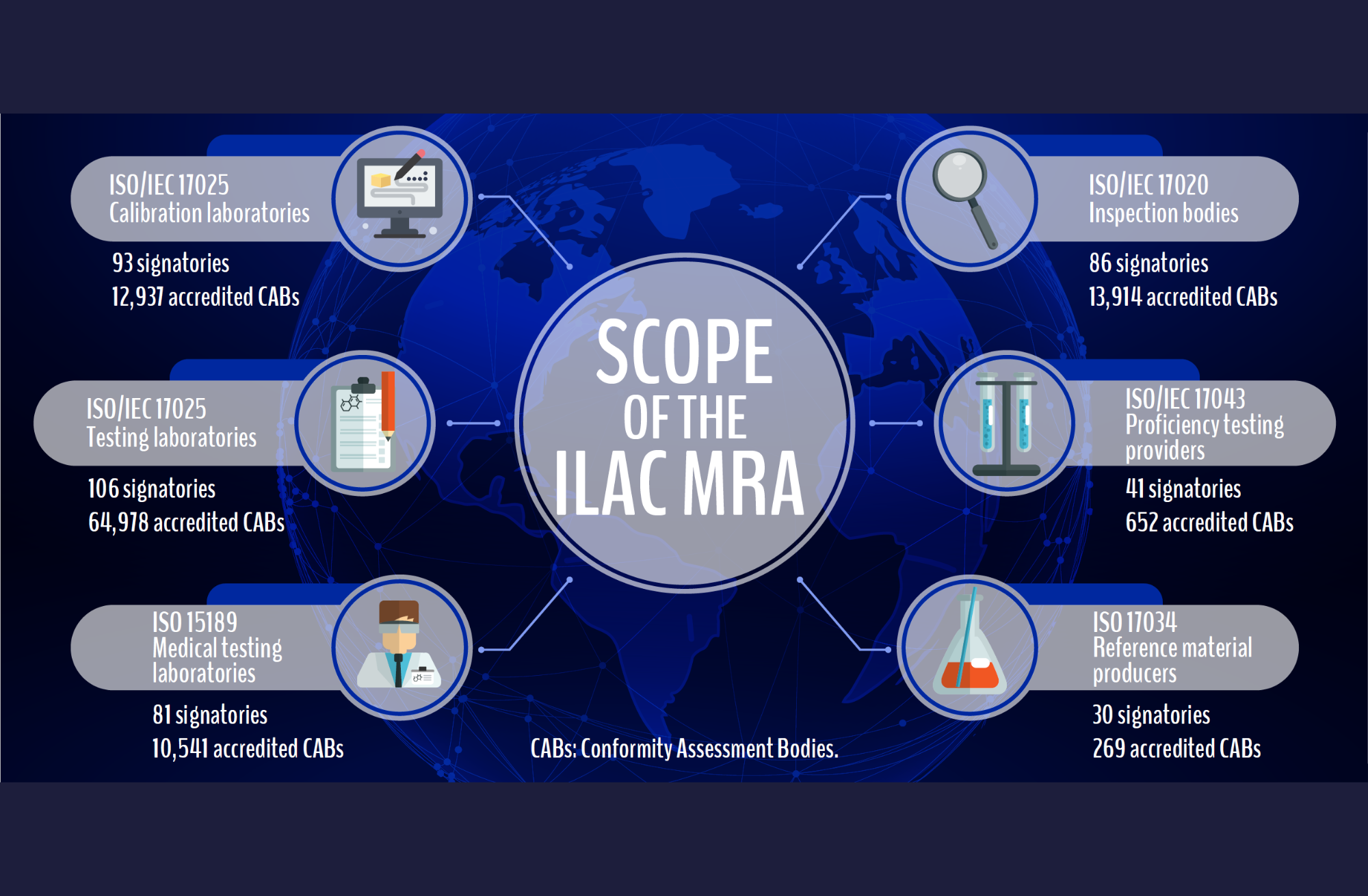
The 2022 ILAC MRA Report and infographic is now available to download.
ILAC and its accreditation body members invest significant effort and resources to maintain the integrity and consistency of the ILAC Mutual Recognition Arrangement (MRA), also known as the ILAC Arrangement, through a peer evaluation process.
This report provides information on the activities carried out as part of the global peer evaluation process in 2022 in order to ensure that both regulators and consumers of laboratory and inspection data, as well as users of proficiency testing programs and reference materials are able to maintain confidence in the services accredited by the signatories to the ILAC Mutual Recognition Arrangement (MRA).
Read More
The signatory status of Oficina Guatemalteca de Acreditación (OGA), Guatemala, to the ILAC MRA has been re-instated effective 30 May 2023 following the suspension in March 2023. This re-instatement of the signatory status of OGA to the ILAC MRA is a result of the re-instatement of the signatory status of OGA to the IAAC MLA and in accordance with IAF/ILAC A2 Annex 7.
Read More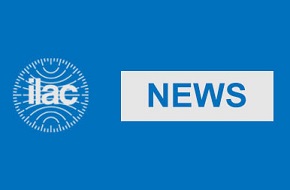
ILAC has now published the ILAC Assessment Procedure in the field of Telecommunications. This document is created in the framework of cooperation established under the Memorandum of Understanding (MoU) between the International Telecommunication Union (ITU) and the International Accreditation Forum (IAF) and the International Laboratory Accreditation Cooperation (ILAC).
The ITU is the United Nations specialized agency for information and communication technologies (ICTs).
The ITU maintains a register of test laboratories that are eligible to test ICT equipment against the ITU-T Recommendations in the ITU list of recognized test laboratories. The ILAC Assessment Procedure in the field of Telecommunications has been produced to inform ILAC MRA signatory accreditation bodies about the requirements that must be met by testing laboratories seeking to be registered on the ITU list of recognized test laboratories.
Read More
The IAF and ILAC Executive Committees have prepared an Invitation to tender for provision of the Secretariat for the transition from IAF and ILAC to the NEW BODY, for the period of 01 January 2024 – 31 December 2026 inclusive.
The Request for Proposal is available here. Questions should be directed to the Contractor supporting the establishment of the NEW BODY: Thomas Facklam unternehmensberatung@facklam.de. Interested service providers are invited to submit their tenders by 23:59 UTC on Sunday 25 June 2023.
Read More
The signatory status of the Accreditation Education Research and Scientific Services Center Pvt. Ltd (AERSSC), Nepal to the ILAC MRA has been withdrawn as a result of the voluntary withdrawal by AERSSC of their signatory status to the APAC MRA.
AERSSC remains an Associate member of ILAC. https://ilac.org/ilac-membership/members-by-category/
Read More
We welcome Non-Profit Association Estonian Centre for Standardisation and Accreditation (EAK), Estonia, as a Full Member of ILAC.
As EAK is a signatory to the EA MLA for the accreditation of testing laboratories using ISO/IEC 17025, medical testing laboratories using ISO 15189, calibration laboratories using ISO/IEC 17025 and inspection bodies using ISO/IEC 17020, EAK has been granted signatory status to the ILAC MRA and therefore, Full membership of ILAC.
We welcome EAK and look forward to working with our EAK colleagues.
The full list of signatories to the ILAC MRA is available here.
Read More
We are pleased to advise that ISO/IEC 17043:2023 Conformity assessment — General requirements for the competence of proficiency testing providers has now been published.
Further a resolution was endorsed at the ILAC General Assembly held in November 2022 to allow a 3-year implementation period from the date of publication of this revised standard (ie now 31 May 2026) as shown below:
ILAC Resolution GA 26.09
As the revised version of ISO/IEC 17043 is scheduled for publication in 2022 or early 2023, the General Assembly endorses the recommendation of the AIC that a transition period of 3 years from the date of publication be adopted.
At the end of the transition period, accreditation of a proficiency testing provider to ISO/IEC 17043:2010 will not be recognised under the ILAC Arrangement.
The implementation of this transition period for ISO/IEC 17043 by the signatories to the ILAC MRA for the accreditation of proficiency testing providers will be monitored by the ILAC AMC to ensure the deadline is achieved. The process used by the AMC to monitor this implementation of the revised standard will be similar to that used during the implementation of ISO/IEC 17025:2017.
We would also like to take this opportunity to thank Erik Oehlenschlaeger, ILAC AIC Chair, the members of the AIC Proficiency Testing working group and our liaison officers to the ISO WG responsible for this standard for their contributions on behalf of ILAC to the revision of this important standard for our accreditation body members and their accredited proficiency testing providers.
Read More
The Czech Accreditation Institute (CAI) was established as a national accreditation body by the Czech Republic on 1st January 1993. In January 2023, a festive meeting of CAI staff was held to celebrate the 30th anniversary. The meeting took place in the splendid surroundings of the historic town of Jindřichův Hradec, founded by the royal family of the Přemyslid in the 10th century.
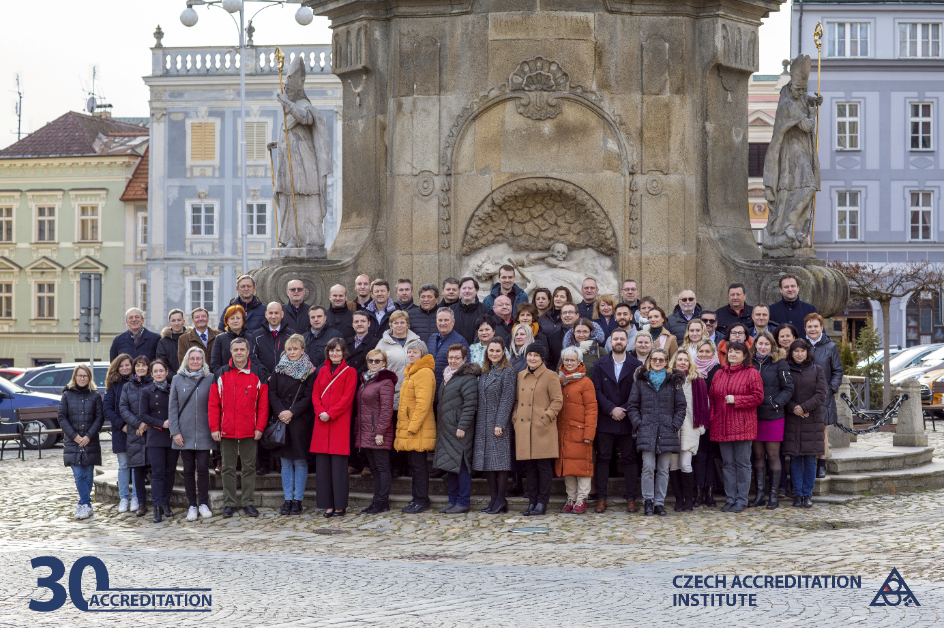
Participants recalled the history of the establishment and operation of the CAI from its earliest beginnings to the present day.
In 1996 the initial peer-evaluation of CAI was undertaken and in 1998 the CAI signed the EA Multilateral Agreement (MLA) to become the first EA MLA signatory in Central and Eastern Europe and in doing so gained international recognition.
Read More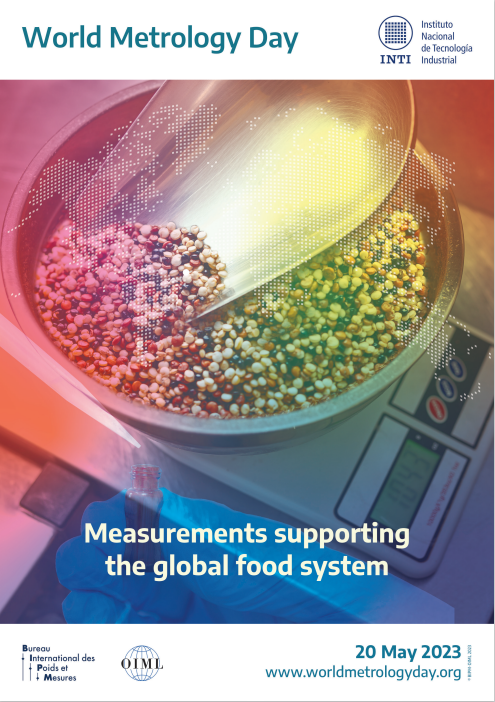
The OIML and the BIPM are pleased to announce that the 2023 World
Metrology Day Resource Website is now live:
https://www.worldmetrologyday.org/
The theme in 2023 is “Measurements supporting the global food system”.
This theme was chosen because of the increasing challenges of climate
change, and global distribution of food in a world whose population
reached 8 billion at the end of 2022.
The 2023 poster was designed in association with Sistema Interamericano
de Metrología (SIM) and the Instituto Nacional de Tecnología Industrial
(INTI), Argentina.
On the Resource Website, you may download the Press Release, the
Directors’ Message, and the poster in English and in French. The poster
may be downloaded in PDF and PhotoShop formats.
Last year’s World Metrology Day was a huge success; we hope to build on
that success in 2023.
Please help us to spread the word about World Metrology Day and let the
World Metrology Day Team know by email about the events you are
organising in your country so that we can include them on the website.
For inspiration, you can see the type of events organised by other NMIs
in previous years on the website.
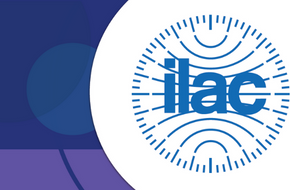
The ILAC MRA
As a result of the recent ILAC Arrangement Council ballot, The Southern African Development Community Cooperation in Accreditation (SADCA) has been granted recognition as a regional cooperation body of ILAC.
The scope of recognition of the recognised regions to the ILAC MRA is available from Recognised Regional Cooperation Bodies International Laboratory Accreditation Cooperation (ilac.org)
Information on the acceptance of calibration, testing and inspection results, programs provided by PTPs and reference materials produced by RMPs via the ILAC MRA is available from ILAC MRA and Signatories International Laboratory Accreditation Cooperation.
There are currently 109 signatories to the ILAC MRA representing 116 economies. The ILAC MRA covers recognition for accreditation in the areas of calibration (ISO/IEC 17025), testing (ISO/IEC 17025), medical testing (ISO 15189), inspection (ISO/IEC 17020), proficiency testing providers (ISO/IEC 17043) and reference material producers (ISO 17034). The list of signatories to the ILAC MRA is available from the ILAC MRA Signatory Search.
The ILAC MRA Annual Report 2021 and associated infographic was published in June 2022 and is available from ILAC Promotional Brochures International Laboratory Accreditation Cooperation.
The 2022 report will be published in May 2023.
Work to extend the ILAC MRA to include the accreditation of biobanks has now reached the stage where applications for recognition are being accepted. This follows the publication of the revised supporting documents as outlined in the resolution adopted during the 25th ILAC General Assembly in 2022: ILAC Resolution GA 25.09 The General Assembly endorses the recommendation of the ARC to extend the ILAC Mutual Recognition Arrangement (MRA) to include accreditation of biobanking as a Level 2 activity, to the criteria specified in the Level 3 normative document, ISO 20387. ILAC will therefore accept applications for recognition as soon as the documents within ILAC applicable to the MRA are updated to cover this new scope.
Case studies and research on the recognition of the ILAC MRA by governments and regulators are available from the Public Sector Assurance website. The website is a collaborative initiative of the INetQI members and there are over 330 case studies, 90 research papers and 60 supporting materials available to view.
The Business Benefits website a reference website designed to demonstrate the monetary value of standards, conformity assessment and accreditation for businesses. The website represents another successful collaboration of the INetQI partners with over 95 case studies categorised into 6 areas of value. All of the case studies identify a clear financial benefit. The site also includes more than 75 research papers.
ILAC Membership
The ILAC membership as of 12 April 2023 is:
The ILAC membership consists of 154 organisations from 129 different economies worldwide. Over 88,000 laboratories, 13,900 inspection bodies, 604 PTP and 260 RMP are accredited by the ILAC Full Members (signatories to the ILAC MRA).The latest statistics and graphs on the number of accreditation bodies, accredited laboratories, inspection bodies, PTPs and RMPs are available from the ILAC Facts & Figures page.
Decision to Establish a Single International Organisation for Accreditation
Work commenced on the IAF-ILAC Single Organization Project on 1 March 2021 to establish a Single International Organisation for Accreditation in accordance with the 2019 JGA Frankfurt Resolutions. The contractor managing this process is Dr.-Ing. Thomas Facklam.
The contractor is currently working closely with the Joint Steering Committee on various tasks associated with this project and in 2022 both the ILAC Extraordinary GA and the IAF/ILAC JGA focused on topics associated with this project.
ILAC Meetings
All ILAC meetings and joint ILAC-IAF meetings were again held virtually during 2022.
An extraordinary virtual meeting of the ILAC General Assembly (EGA) was held on 15 September to consider specific topics related to the establishment of the single international organisation for accreditation. The Joint IAF/ILAC General Assembly (JGA) was held virtually on 10 November 2022 and the 26th ILAC General Assembly was held virtually for the third year running on 15 November 2022. The Adopted Resolutions are available to download from the ILAC website.
The IAF/ILAC mid-term meetings are being held in Belfast, Northern Ireland, 1 – 8 May 2023. Delegates who wish to participate virtually are also able to purchase a virtual pass for these meetings. The on-site and virtual management of these meetings is being provided by Say Something Communications.
The IAF/ILAC annual meetings will be held in-person in Montréal, Canada from 6 – 15 November 2023.
In addition to the in-person meetings noted above all ILAC Committees, Working Groups and Task Forces continue to progress the items on their work plans via a combination of email and remote meetings.
Information on future meetings and events, including major regional meetings, can also be found in the ILAC Calendar.
ILAC Liaisons and other International Activities
The current list of ILAC liaison activities includes:
ILAC Liaisons with ISO and ISO/CASCO Policy Committees
ILAC Liaisons with ISO/CASCO Working Groups/Task Forces
ILAC Liaisons with Other Organisations
Information on ILAC’s partnerships, including copies of communiqués, joint procedures, press releases and MoUs, is available from the ILAC Partnerships page.
ILAC thanks all of the ILAC liaison officers, and their organisations, who volunteer their time to assist ILAC in carrying out these activities for the benefit of all ILAC members.
ILAC Secretariat
The ILAC Secretariat staff currently includes Annette Dever, Sharon Kelly, Hannah Yeoh, Stephanie Sun (0.6 FTE), Rose De Rota (0.7 FTE), and Joelle Nicolas (0.8 FTE).
ILAC Marketing and Communications Officer, Rebecca Sheehan’s last day was Friday 17 February 2023. Rebecca has taken up a permanent role that will provide greater stability and career pathways, noting that the ILAC Secretariat, in its current form will cease operation at the end of 2023. We thank Rebecca for her contribution to both ILAC and the Joint IAF/ILAC work activities while she was working with the Secretariat, and we wish Rebecca all the best for the future.
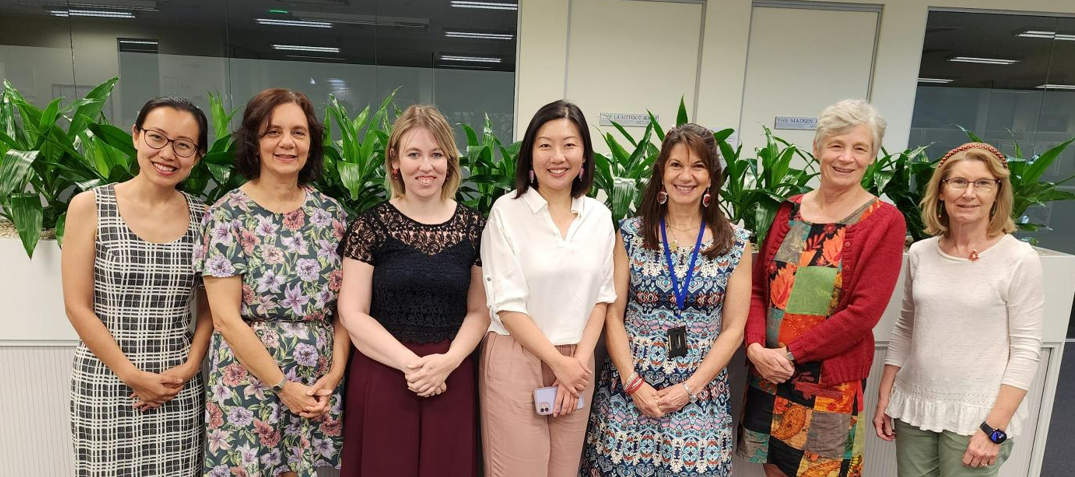
Stephanie Sun, Joelle Nicolas, Rebecca Sheehan, Hannah Yeoh, Rose De Rota, Sharon Kelly, Annette Dever
Documents and Brochures
The following publication has been finalised and released since October 2022:
ILAC-G24:2022 Guidelines for the determination of calibration intervals of measuring equipment
Follow @ILAC_Official on Twitter to receive the latest ILAC news, including information on meetings, events, liaison activities and new publications.
The April 2023 edition of ILAC News is available from News International Laboratory Accreditation Cooperation (ilac.org).
Subscribe to the latest news to receive updates from ILAC members and liaisons.
Read More